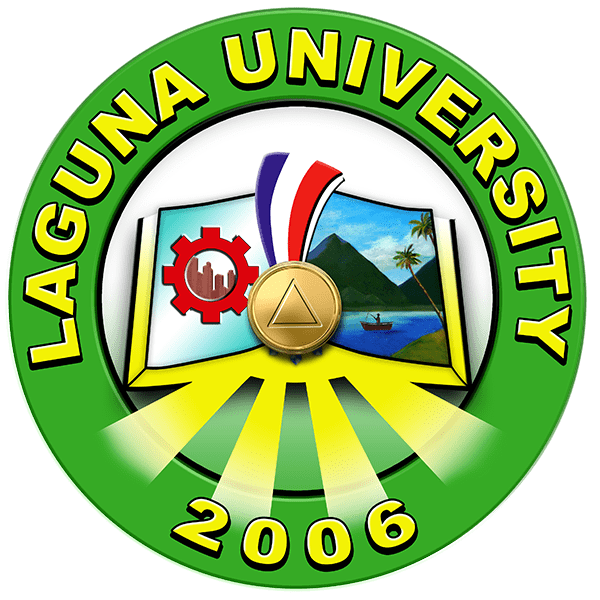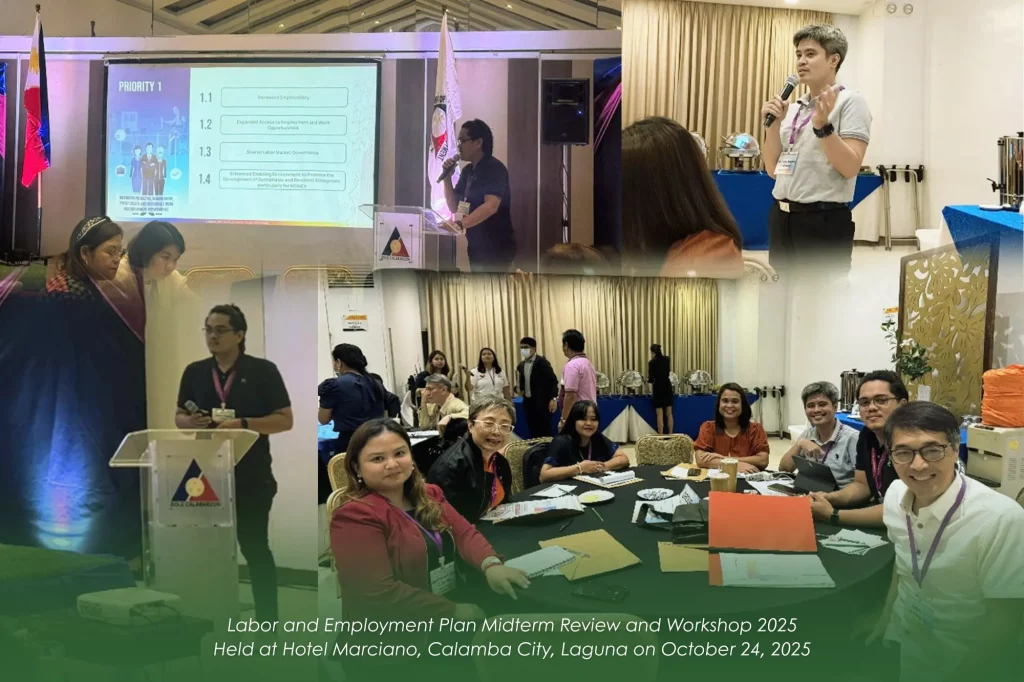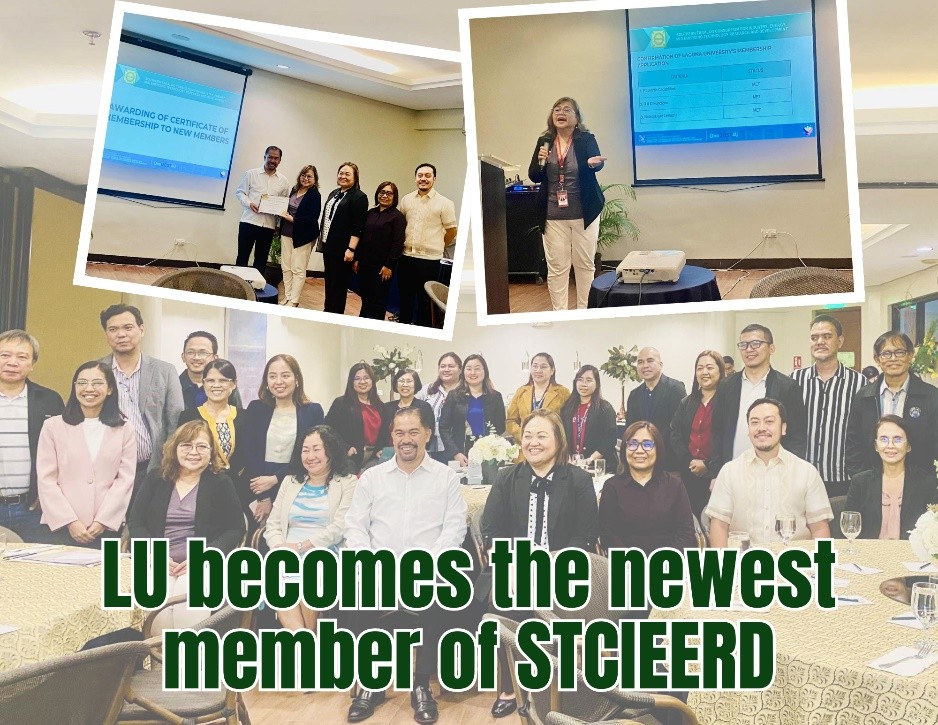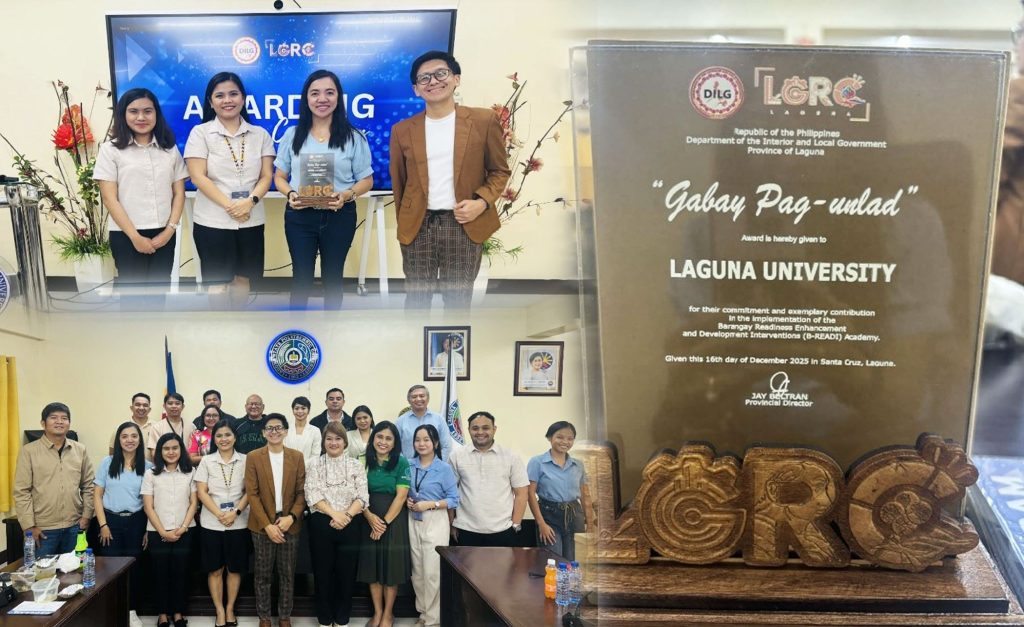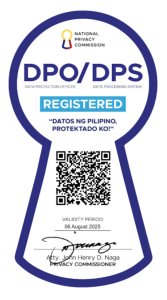Region 4A is placing a laser focus on its first and foremost priority: Maximizing Productive, Remunerative, Freely Chosen, and Sustainable Work and Employment Opportunities.
The session was graced by the presence of senior officials from the Department of Labor and Employment (DOLE), including Assistant Secretary Lennard Constantine C. Serrano and Arturo Alfonso J. Herbosa, Director of the Bureau of Labor Relations (BLR), underscoring the national significance of the regional initiative.
The discussion for Priority 1 was presented by Juan Miguel A. Adao, who, alongside Mr. Tony Angelo C. Alvaran from Laguna University, helped steer the group’s deliberations. They were seated alongside key stakeholders from industry and academia, including Mr. Zaldy Antioquia, Owner/General Manager of Z. Antioquia Construction; Ms. Rachel C. Cruz, President of Trimex Colleges; and Ms. Jhunelyn Napa from PHINMA-Rizal College of Laguna. The session was expertly facilitated by Ms. Franchesca Rose S. Castillo, with proceedings documented by Ms. Celia G. Ariola and Jorge Manuel C. Laude.
The group worked in concert with representatives from various Higher Education Institutions, the Department of Education (DepEd), and government agencies including the Philippine Statistics Authority (PSA), the Department of Information and Communication Technology and the Department of Migrant Workers (DMW), as well as other private sector companies like Yazaki Torres Manufacturing Inc.
The plan strategically targets Key Engines of Growth by concentrating on high-potential sectors identified as primary employment generators: Healthcare, Automotive/Transportation, IT-BPM, and Agriculture. The objective is to create a vital synergy between workforce development and economic demand, thereby ensuring that training programs and new opportunities are directly aligned with the evolving needs of the market.
The LEP’s framework is built on four strategic pillars. First, it aims to Increase Employability by equipping workers with the skills needed for a modern economy. Second, it seeks to Expand Access to Opportunities by creating pathways between job seekers and employers while supporting entrepreneurship. Third, it promotes Shared Labor Market Governance, uniting government, the private sector, and academia to shape effective labor policies. Finally, it focuses on an Enhanced Environment for MSMEs, providing support to ensure these businesses remain a key source of quality employment.
A Collaborative Path Forward
Enriched by the insights of DOLE officials and all participants, this workshop facilitated intensive discussions that yielded actionable recommendations. The resulting outputs, which represent the unique perspectives of national and regional government, industry, and education, are now being integrated into the refreshed implementation plan. By investing in its people, streamlining access to opportunities, fostering collaboration, and empowering local businesses, the region is building more than a plan for growth, it is laying the foundation for inclusive and sustainable economic prosperity for all.
By: Juan Miguel A. Adao

